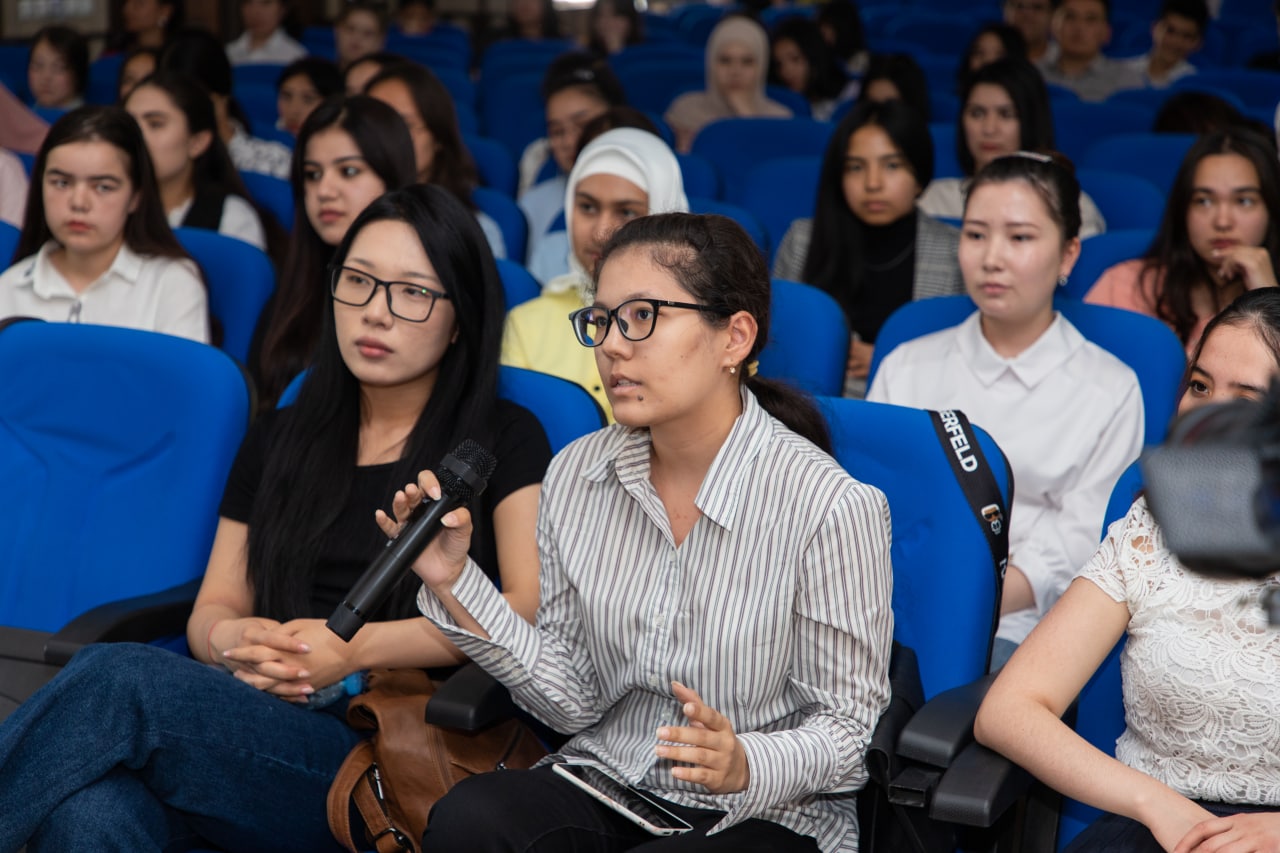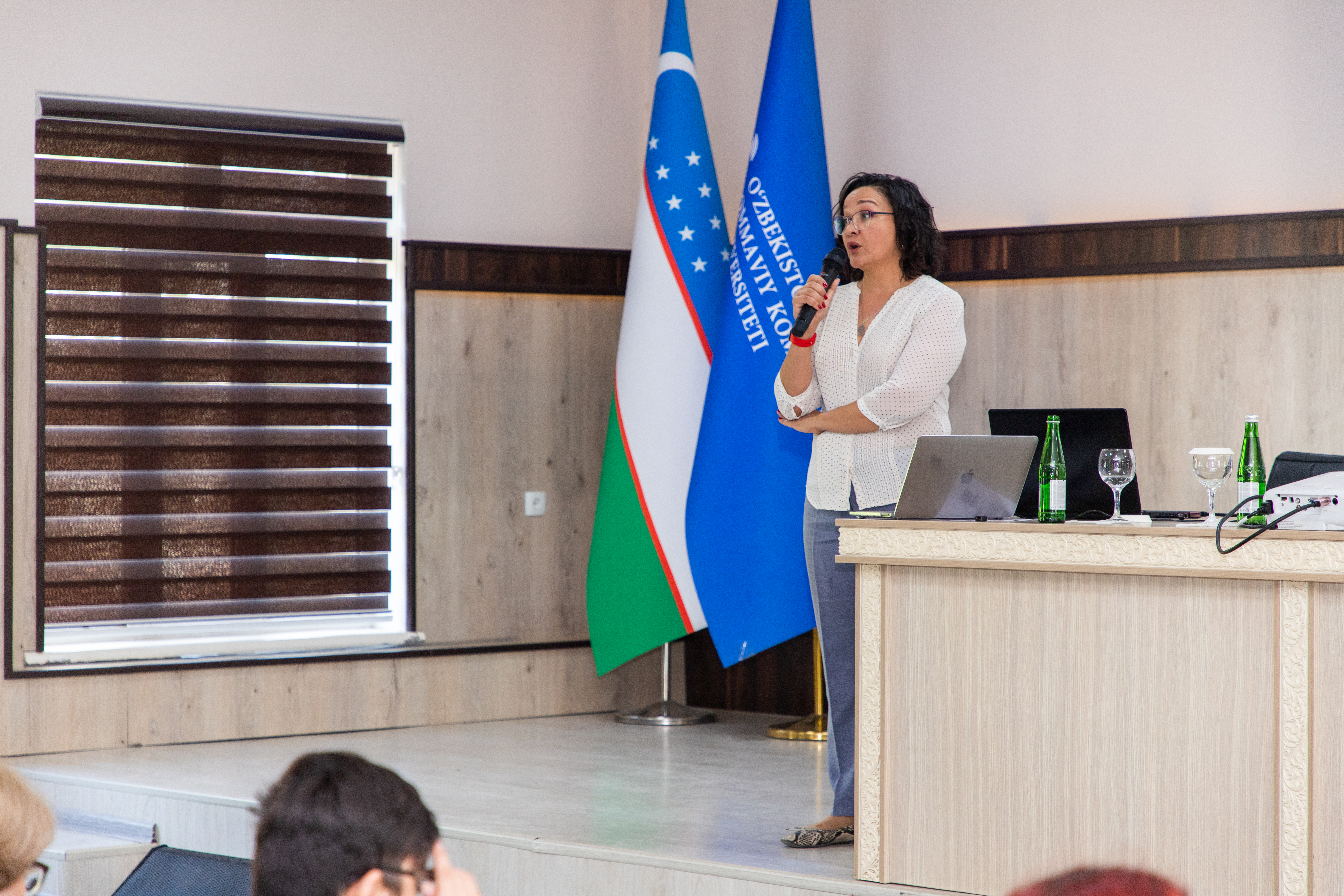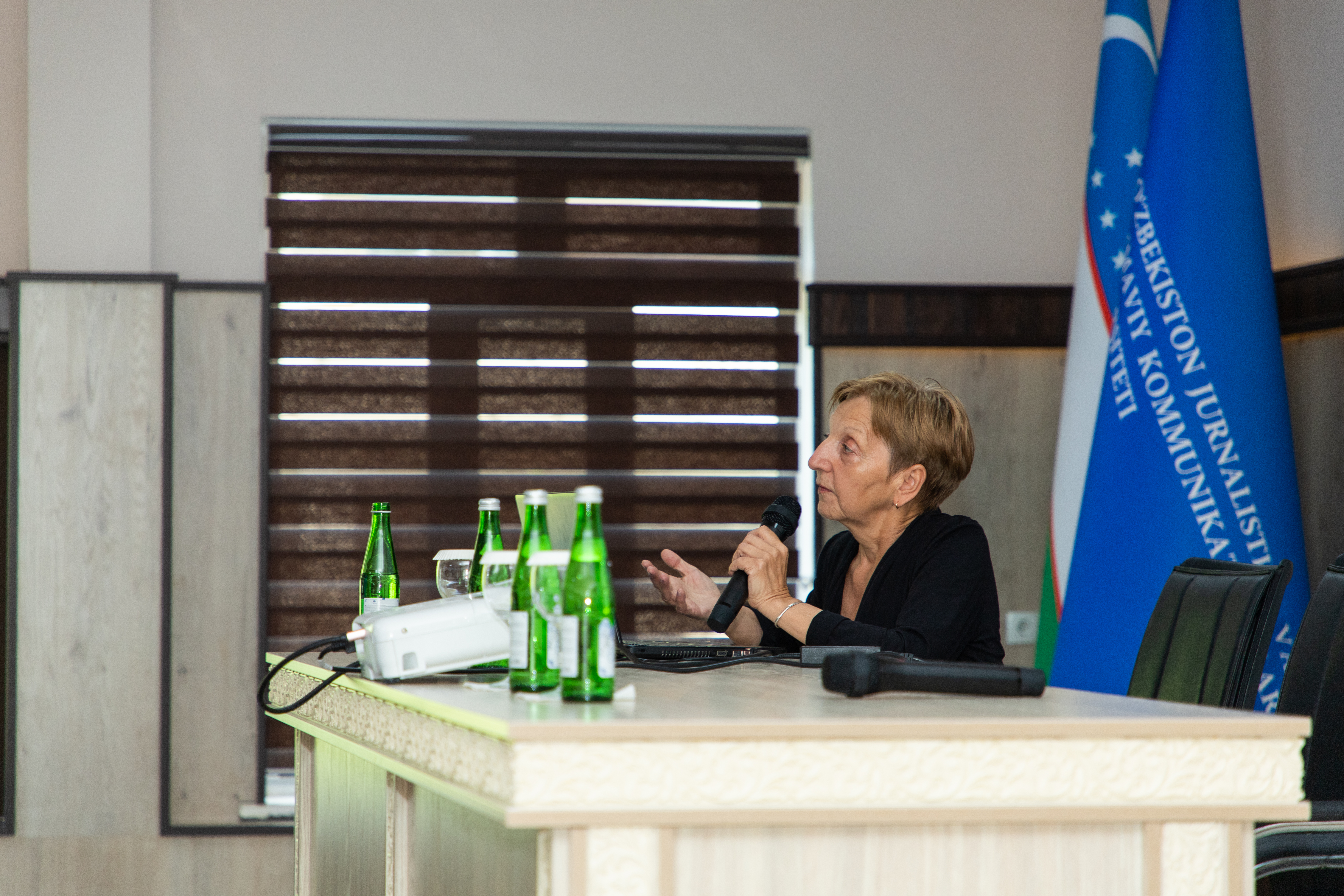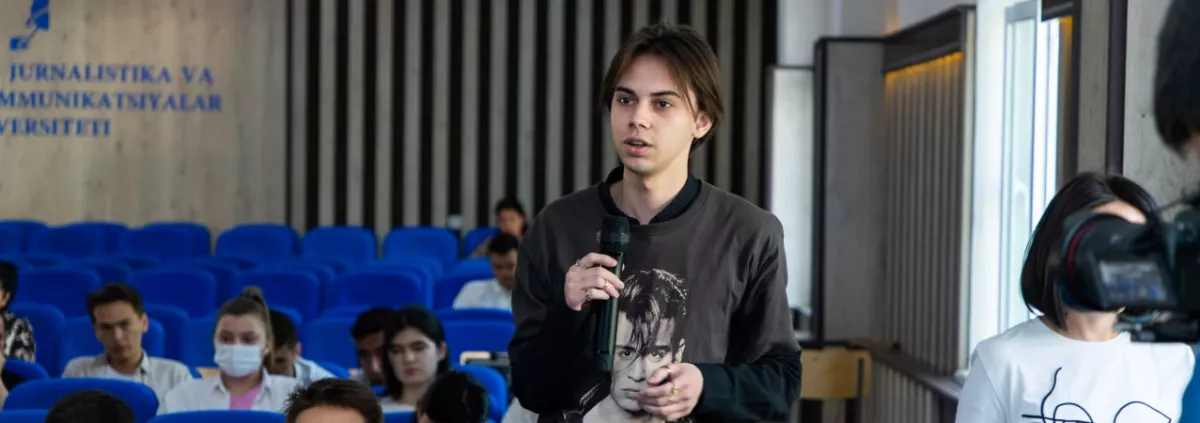Effectively addressing climate change’s impacts requires the commitment and engagement of all members of the public, but this unified response is too often undermined by misinformation and denialism in popular media.

To ensure future journalists understand the facts and facets of climate change and its ramifications, the United Nations Development Programme (UNDP) together with the UK Foreign, Commonwealth and Development Office (FCDO) arranged a meeting between students of the University of Journalism and Mass Communications of Uzbekistan and climate change experts.

This event was held as an open-talk session on the topic of ‘Critical thinking and fact checking’. The organizers set themselves the task of acquainting students with global problems related to climate change and its impacts on humanity.
"Over the past few years, the media space has seen an increase in the number of posts and articles containing false claims that climate change has not been confirmed by scientific knowledge. The authors of such materials take advantage of the lack of critical thinking on the part of the audience. That is why it is so important for journalism students to know about climate change processes and their consequences, so they’ll be able to present information correctly and help debunk myths,"
said Lola Islamova, university lecturer and journalist.
Since the 1950s we have witnessed unprecedented climate change and its consequences, including atmospheric warming and rising ocean temperatures, and reducing snow and ice reserves, all the result of increasing greenhouse gas emissions. According to the World Meteorological Organization (WMO), every year since 2014 has been declared the warmest on record. Changes in the atmosphere’s composition over the past century have indicated a rapid increase in greenhouse gas concentration, being a consequence of anthropogenic impacts on the environment.
"The quality of information available to a wide audience depends on the work of journalists. I have had a difficult task - to engage the public and talk about climate change in an intelligible form, one based on scientific research," said Lyudmila Shardakova, UNDP climate change expert.
Aliya Abdugaliyeva, a first-year student at the University of Journalism, has shared her impressions of the meeting.
"I am from Karakalpakstan and I know first-hand how climate change affects people's lives. I am glad to learn that Uzbekistan has signed and ratified the Paris Agreement of the UN Framework Convention on Climate Change,” Aliya said. “Along with important clauses on reducing greenhouse emissions, the Agreement contains provisions for the requirement to pay more attention to education and training. I am fully determined to contribute to the fight against climate change."

This meeting was organized within the framework of the regional project ‘Policy action for climate security in Central Asia- Phase II’, implemented by UNDP in cooperation with the Center of Hydrometeorological Services (Uzhydromet) of the Republic of Uzbekistan, and funded by the UK Foreign, Commonwealth and Development Office (FCDO).

Please log in or sign up to comment.